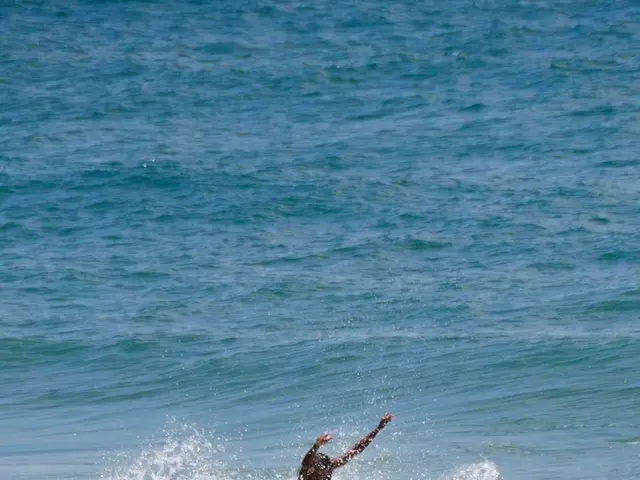Impact Assessment of Macau's New Business Restrictions According to Morgan Stanley
Rolling the (Macau) Dice: A New Era for Gambling in the Gaming Capital
It's no secret that this year has been a game-changer for Macau's gambling industry. With the borders sealed since the pandemic, businesses have been battling to stay afloat. However, with a fresh coat of legislation, Macau is showing it's not about to fold just yet!
Closing the Casino Caps
The government's new moves include a maximum of 6,000 gaming tables and 12,000 machines, while setting a minimum casino revenue for 2023 at MOP$45.6 billion ($564 million). Translation? These limits are designed to create an orderly and healthy growth, and the revenue caps are claimed to be easily achievable. But, if an operator fails to meet these targets, they'll be on the hook to cover the difference—the government wants a piece of the pie, come hell or high water!
The latest regulations also bring in a cap on gross income per table or slot machine, standing at $866,122 and $37,120, respectively. Morgan Stanley's analysis suggests that the table cap will hit Sands China and SJM Holdings the hardest, while Wynn Resorts and MGM China may see some benefits. As for the slot machines, Sands will bear the brunt, with Melco and Galaxy joining the fray. However, it's a win for Wynn, MGM, and SJM if the shakeup evens out.
With the new slot and table numbers, it's safe to say Sands China might be left feeling sorely short-changed, especially considering it once operated a whopping 6,000 machines before the pandemic—a roller coaster of a reduction to just 2,000!
Macau's Casino Future: Straight or crooked?
The revamp of Macau's gambling laws has kicked off a bulk of debate, with many arguments flying around. MdME Lawyers have even weighed in by publishing an in-depth look at the new Amendment to the Macau Gaming Law and Public Tender Regulation.
National security is on everyone's lips, with concerns that the new regulations are steering Macau closer to the comfort zone of Beijing, mirroring broader business trends aligning with Big Sis China's preferences.
Junket operations in Macau were closed a beat ago, and the SAR's Statistics and Census Service recently released new data indicating a massive spike in unemployment—but tying those numbers to a single factor is like trying to catch smoke in your hands. Despite international travel to Macau being back on the table, quarantine rules are still a thing, meaning even if tourism picks up, the impact on casinos will be slow in coming.
According to Reuters, the contracts of the SAR's licensed operators are set to run out by the year's end. That means even if business recovers, the big players are facing a catch-22: on the one hand, they're eager to recover faster, but on the other, the new income limits on their operations are like a pesky speed bump suddenly appearing. Of course, this only becomes a real issue if Macau gets through its COVID breakouts—otherwise, the whole thing will be more talk than action.
- The gambling legislation in Macau has introduced a maximum of 6,000 gaming tables and 12,000 machines, along with a minimum casino revenue for 2023 at MOP$45.6 billion ($564 million).
- The new regulations in Macau also impose a cap on gross income per table or slot machine, standing at $866,122 and $37,120, respectively.
- MdME Lawyers have published an in-depth analysis on the new Amendment to the Macau Gaming Law and Public Tender Regulation, sparking a debate about the revised gambling laws.
- There are concerns that the new regulations steer Macau closer to Beijing's preferences, reflecting broader business trends aligning with China's national security interests.
- The contracts of the SAR's licensed operators are set to run out by the end of the year, adding a catch-22 for the big players, who are eager to recover but face new income limits on their operations.








